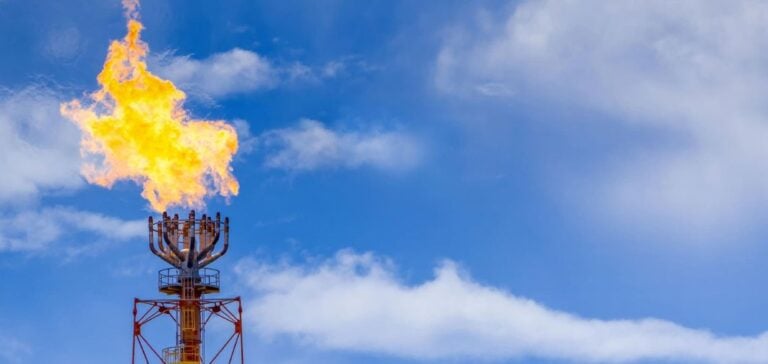During Iraqi Prime Minister Mohammed Shia al-Sudani’s visit to the United States for talks with President Joe Biden, the two nations signed two memorandums of understanding. The aim of these documents is to capture and process the associated natural gas, normally lost through flaring, to boost power generation in Iraq. The Iraqi joint venture Basrah Gas Co (BGC) had already received a $360 million loan from the World Bank in 2021 to reduce gas flaring.
Environmental and energy context
Iraq, which recorded the second highest level of gas flaring in the world in 2022 with over 17.9 billion cubic meters of gas flared, ranks just behind Russia according to World Bank data. This practice not only wastes important energy resources, but also keeps Iraq dependent on Iranian gas and electricity imports.
Collaboration with Siemens Energy and SLB
In March, Iraq’s Ministry of Oil announced its collaboration with Siemens Energy and SLB to transform associated gas, which would otherwise be flared, into a viable source for power generation.
Self-sufficiency goals and the challenges of sanctions
With the aim of achieving energy self-sufficiency by 2030, Iraq is working to reduce its dependence on Iranian energy imports, which are subject to US sanctions requiring periodic waivers. The latest exemption was granted on March 13, with continued pressure from the US to further reduce these imports.
Frequent power outages in Iraq, particularly during the summer months when demand for air conditioning is high, have already led to civil unrest and deadly demonstrations. As OPEC’s second largest crude producer, Iraq produced 4.28 million barrels per day in March, reveals S&P Global Commodity Insights’ Platts OPEC+ survey.






















